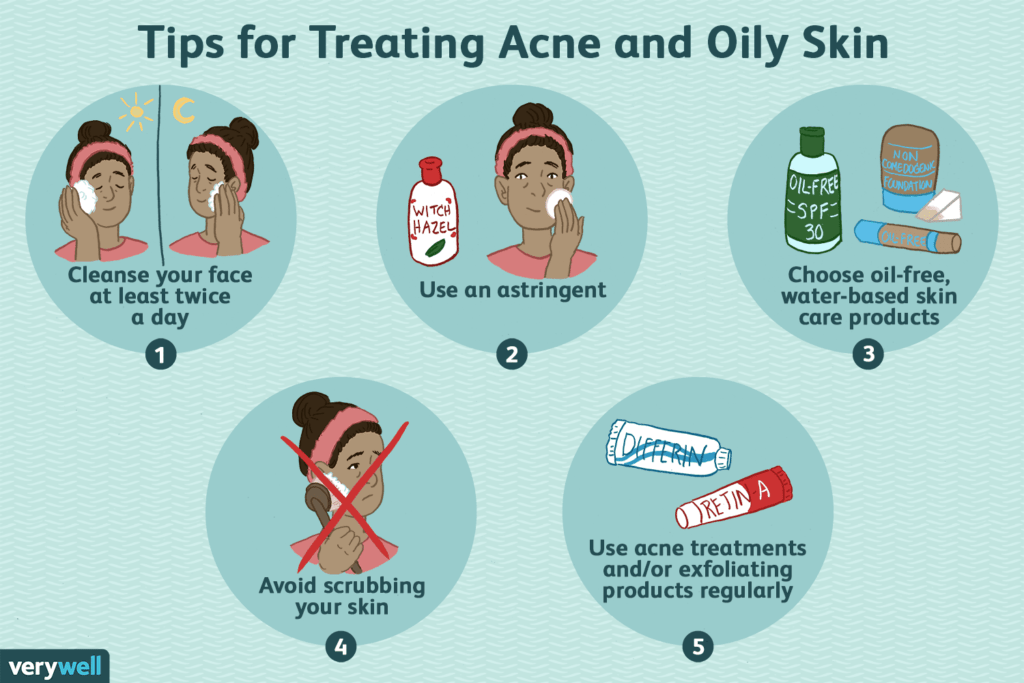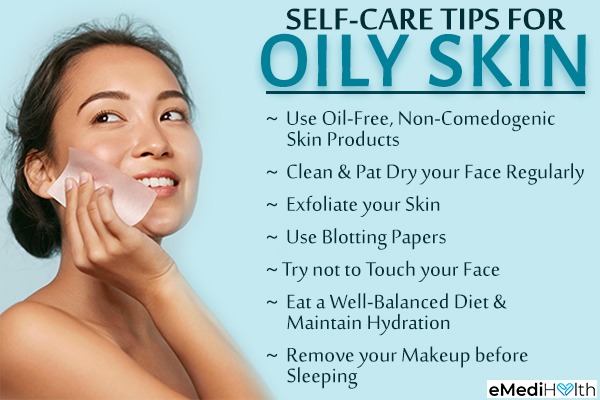I. Introduction
Oily skin can be a perplexing challenge for many individuals, prompting questions like, “Why is my skin so greasy?” Understanding the factors contributing to shiny skin is the first step in developing an effective skincare routine.
II. Causes of Oily Skin
Genetics and Hormonal Factors:
Oily skin can often be attributed to genetic predispositions and hormonal fluctuations, which lead to overactive sebaceous glands.
III. Identifying Oily Skin
Common Signs and Symptoms:
A shiny complexion, enlarged pores, and frequent acne breakouts are telltale signs of oily skin. Proper classification of your skin type is crucial for tailored care.
IV. Impact of Oily Skin
Pores and Acne:
The excess oil production can clog pores, leading to acne and blackheads. Managing oil levels is key to preventing these issues.
Makeup Challenges:
Shimmering skin presents challenges for makeup longevity. Finding suitable products becomes essential.
V. Building an Effective Skincare Routine

Importance of Cleansing:
Regular and gentle cleansing is crucial for managing glossy skin. It helps control excess oil without stripping the skin of essential moisture.
Suitable SPF Products:
Opt for moisturizers, face washes, and beauty products with an SPF of 30 or higher. This helps protect the skin without feeling heavy or greasy. Sun protection is vital for preventing skin damage.
VI. Choosing the Right Moisturizers
Non-Comedogenic Formulas:
Look for moisturizers labeled as non-comedogenic to avoid clogging pores.
Hydration without Excess Oils:
Choose products that provide hydration without adding extra oils to your skin.
VII. Face Wash for Oily Skin
Salicylic Acid Cleansers:
Incorporate face washes with salicylic acid for their effective oil control properties.
Gel-based Options:
Gel-based cleansers help in thorough cleansing without over-drying the skin.
VIII. Beauty Products for Oily Skin
Matte Foundations:
Opt for matte foundations to control shine throughout the day.
Oil-Free Makeup Products:
Use makeup products labeled as oil-free to avoid exacerbating oiliness.

IX. Tips for Managing Glossy Skin
Blotting Papers:
Keep blotting papers handy for quick oil absorption.
Regular Exfoliation:
Gentle exfoliation helps remove dead skin cells, preventing pore blockage.
X. Lifestyle Changes for Healthy Skin
Balanced Diet:
Include fruits, vegetables, and omega-3 fatty acids for overall skin health.
Hydration Importance:
Drink plenty of water to maintain skin hydration, reducing the need for excessive oil production.
XI. Myths about Oily Skin
Moisturizing Misconceptions:
Contrary to popular belief, moisturizing is essential for all skin types, including shimmering skin.
Makeup Removal:
Thorough makeup removal is crucial for preventing clogged pores.
XII. DIY Remedies for Shiny Skin
Clay Masks:
Clay masks help absorb excess oil, leaving the skin refreshed.
Natural Ingredients:
Explore natural remedies like aloe vera and tea tree oil for their oil-controlling properties.
XIII. Seeking Professional Advice
Dermatologist Consultation:
When dealing with persistent glossy skin issues, seek advice from a dermatologist.
Prescription Medications:
Prescription medications may be recommended for severe cases of shiny skin.
XIV. Foods to Avoid for Less Greasy Skin
Sugary and Processed Foods:
Limit intake of sugary and processed foods known to contribute to glossy skin.
High-Fat Dairy Products:
Reduce consumption of high-fat dairy products that may exacerbate oil production.
XV. Conclusion
Embracing healthy skin habits, understanding the needs of greasy skin, and making informed product choices can transform your skincare routine. Remember, managing oily skin is about balance, not elimination.
FAQs (Frequently Asked Questions)
- Q: Can greasy skin benefit from moisturizers?
- A: Absolutely! Using non-comedogenic moisturizers helps maintain skin hydration without adding excess oil.
- Q: Are DIY remedies effective for managing oily skin?
- A: Clay masks and natural ingredients can be beneficial, but results vary. Consulting a dermatologist is advisable for personalized advice.
- Q: How often should I exfoliate oily skin?
- A: Gentle exfoliation 2-3 times a week is generally recommended to prevent pore blockage.
- Q: Can genetics be the sole cause of shiny skin?
- A: While genetics play a role, hormonal factors and skincare habits also influence oily skin.
- Q: What foods should be included in the diet for less oily skin?
- A: A balanced diet with fruits, vegetables, and omega-3 fatty acids promotes overall skin health and can help control oiliness.
